Study Courses
The History major includes four research fields: Japanese History, Oriental History, Occidental History and Historical Geography. It provides an excellent level of expertise in political, economic, social, cultural and various other aspects of history, from ancient times to the present day, of Japan, East and West Asia, Europe and North America. In addition to the traditional subject of historical research in political history, it also embraces specialized subjects in social and cultural history.
The Anthropology major includes two research fields: Prehistory/Archaeology and Folklore/Cultural Anthropology. It provides a high-standard of education and research opportunities in a wide range of subjects, including human evolution, the origin of agriculture, the formation of states in the area of Prehistory/Archaeology; and the comparative study of human ways of life, belief systems in the contemporary world, and the folklore of the Japanese and their neighbors in the area of Folklore/Cultural Anthropology.
Each course provides coursework and tutorials related to the specialized research fields. The weekly lectures and seminars are to learn core concepts, theories and methods, as well as expertise. In the tutorials, students present their research progress and obtain feedback to develop their research plan or dissertation. Some of the research fields provide practical field training. Students are also encouraged to attend the lectures provided by other courses or subprograms according to their own research interests.
Japanese History
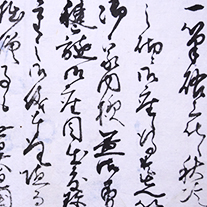
The Japanese History Course, with the teaching staff specialized in various research themes in varied historical periods, provides a well-organized curriculum including discussion seminars and practical training in reading historical documents. We aim to promote researchers who apply themselves to the study of the historical world that was produced through the daily lives of the people who lived in the Japanese islands. Students will acquire professional knowledge and skills that are required for positions at educational institutes or museums. One of our goals is to establish the Japanese History that is approached from multiple perspectives based on the viewpoints of everyday lives of ordinary people, avoiding a stereotypical conventional image of Japanese history. The alumni are working at universities, museums and archives across the country.
Oriental History
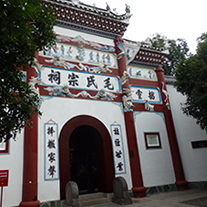
The Oriental History Course particularly focuses on history of China and its surroundings (inland and coastal Asia). From the perspective of political, social and religious history, the teaching staff specialize in the research of both the modern history concerning today’s social problems and their historical background, as well as the pre-modern era, in which the foundations of various historical matters are sought. We place emphasis on the use of primary historical documents in the education and research, and provide training to read documents written in Chinese, Manchu language and other related languages. Our curriculum includes training in data analysis and fieldwork, and aims to promote professionals who can understand the nature of Asian societies from a historical perspective.
Occidental History
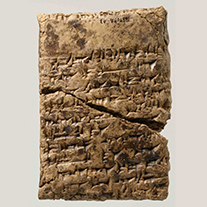
The Occidental History Course has teaching staff who specialize in a variety of research topics involving the history of ancient West Asia, modern Germany, the British Empire and the US. The historical documents dealt with in this course include those written in Sumerian, Akkadian, German, English and French. Students are expected to deepen their specialized knowledge in the selected research theme as well as to broaden their viewpoints in approaching the study of history. Students will receive a high-level education concerning the reading and analysis of historical documents in each language, and are encouraged to conduct their own research in order to develop the abilities of highly skilled professionals, who can contribute to academic developments and social demands.
Related Website:Research Center for West Asian Civilization
Historical Geography
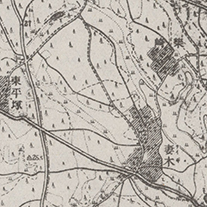
Historical Geography is a discipline which studies our societies from the perspective through time and space (by studying its chronological changes and regional differences), employing a wide range of knowledge, including aspects of both natural and human environments. We are one of a few graduate courses in Japanese universities where students can study historical geography. We provide a curriculum which emphasizes discussion through coursework and the practice of fieldwork, and encourage students to acquire the ability to write their dissertations taking account the dynamism in local societies and the people who play an active role within them. The alumni are working at various universities and educational organizations.
Related Website:Historical Geography Course
Prehistory/Archaeology
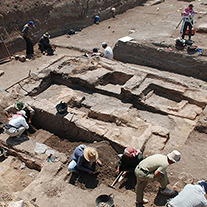
The Prehistory/Archaeology Course provides the education and research opportunities of archaeological studies across Japan and the world ranging from the Palaeolithic to the modern societies. Teachers are currently conducting fieldwork in Japan, West Asia, China and Central Asia, particularly focusing on Japanese state formation in the Kofun period, hunter-gatherer societies and the origin of agriculture in West Asia, and archaeological sciences and heritage conservation across the world. Archaeology, which is the study of various types of material cultures in the past, discovers the lives of past people that were not recorded in historical documents and investigates the changes and continuity of human societies though time. Our aim is to promote talented individuals who can listen to the voice of silent material cultures to better understand the past and future of our society.
Related Website:Archaeology Laboratory
Folklore/Cultural Anthropology
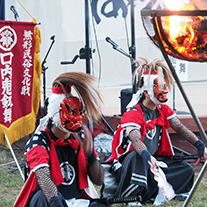
The Folklore/Cultural Anthropology Course provides the education and research opportunities to study various social and cultural aspects in human societies, primarily based on field research and the use of primary research resources. The teaching staff are particularly interested in research topics such as religion and rituals, worship and folktales, subsistence and economy, kinship and gender, science technology, and environments and natural disasters. The geographical regions covered include Japan, East Asia and the Middle East (Turkey). Through a curriculum which aims to develop a student’s ability to pose an appropriate research question, plan and conduct fieldwork, handle primary resources and publish research results, we aim to promote researchers and professionals who can become leaders in their field at universities, research institutes and museums.
